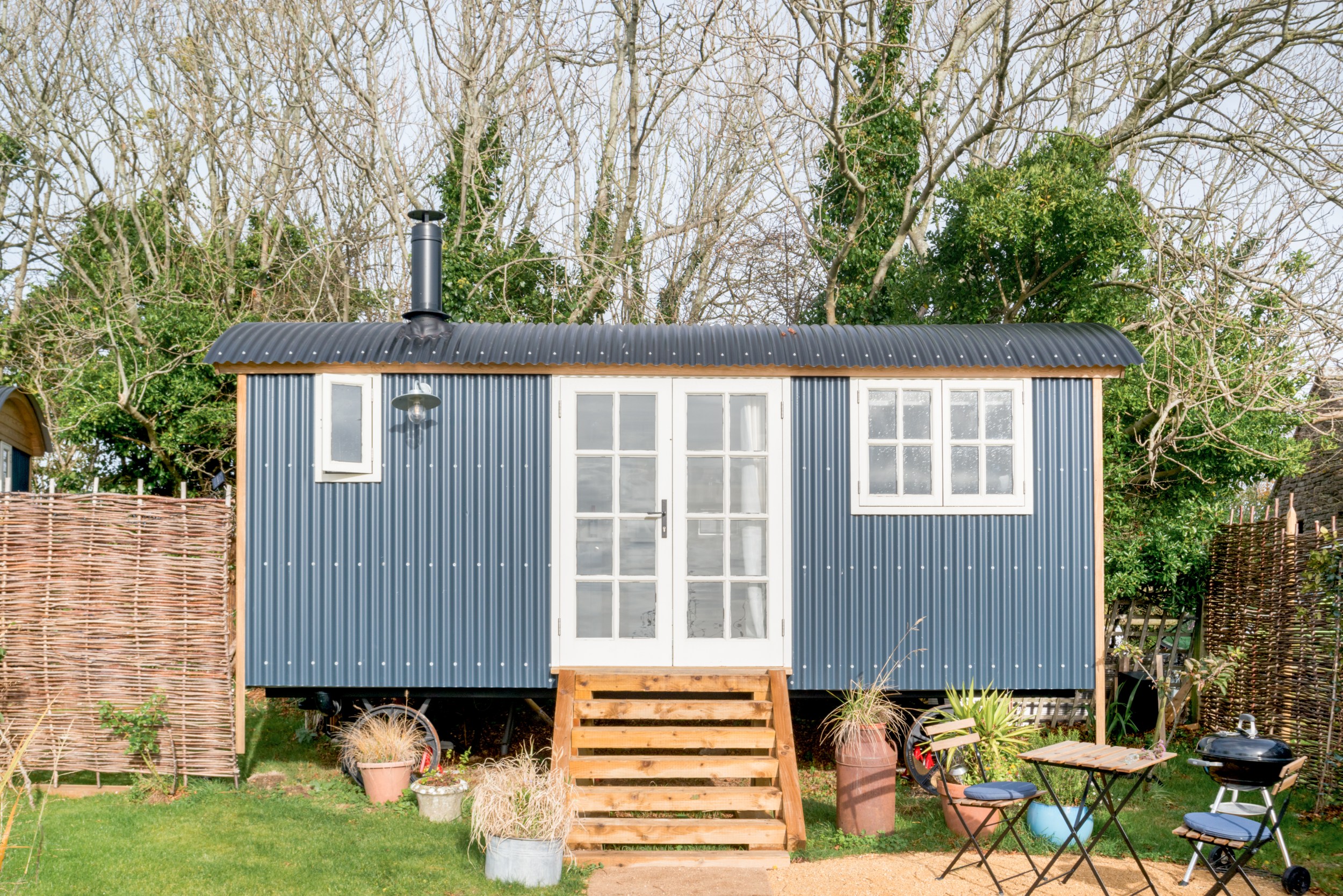Do I need to pay tax on my shepherd’s hut?
We asked our partners at TaxScouts to share their top tips and resources to help Hosts on Airbnb better understand their tax obligations. Read their useful guide about paying taxes for unique listings.*

We asked our partners at TaxScouts to share their top tips and resources to help Hosts on Airbnb better understand their tax obligations. Read their useful guide about paying taxes for unique listings.*
Once used by shepherds during sheep raising and lambing, a shepherd’s hut is secluded, surrounded by nature, and full of historical significance. With so much to offer, it’s no surprise that shepherd’s huts are quickly becoming a popular choice for travellers in the UK.
Of course, letting out a property means paying taxes. In this article, we’ll explain the tax implications of renting out your property, plus any tax reliefs you’re entitled to.
Types of property
Regardless of the property type you’re hosting on Airbnb, you’ll likely owe tax on earnings and profits to HMRC. The exact tax you pay doesn’t vary depending on whether you’re renting out your shepherd’s hut, yurt or your house.
Here’s a list of the different types of properties you can rent out:
- Treehouse
- Yurt
- Boathouse
- Glamping tent
- Penthouse
- Castle
- Barn
- Shepherd’s Hut
- Hut
- Igloo
- Cottage
- Lighthouse
And more!
What taxes do you have to pay?
If you’re renting out a property that isn’t part of your main home , you’ll be taxed like regular business owners based on your earnings. This includes Income Tax, VAT, Capital Gains Tax, business rates, and even council tax.
If you rent out a room or part of your main residence, you’ll instead be able to qualify for the Rent-a-Room tax-free allowance of £7,500.
A shepherd’s hut most likely won’t qualify for the Rent-a-Room Scheme (as it’s a pretty intimate space), but most other properties, that you don’t live in but rent out, will qualify as Furnished Holiday Lettings (FHL).
How do I know if my shepherd’s hut is a FHL?
Your FHL has to:
- Be available to let at least 210 days of the first tax year you start trading (with or without guests)
- Not allow stays longer than 31 days
- Be commercially let as a holiday property for at least 105 days
- Side note: days that either you or your friends/family are occupying the property for free or cheaper do not count
- Be furnished by you
Read more about FHL on the HMRC website.
Advantages of a FHL
There are ways to reduce your Capital Gains Tax by claiming FHL-specific tax reliefs. For example:
- Entrepreneur’s Relief (also known as Business Asset Disposal Relief) – If you sell your FHL, you’ll pay less Capital Gains Tax on any profits you make.
- Rollover Relief
- You can defer your Capital Gains Tax when selling your existing FHL and buying a new one, see Capital allowances
- Ability to claim back for buying furniture, fixings, and equipment
- Tax-advantaged pension contributions -Your rental profits are treated as ‘Earned Income’ so you can make bigger tax-free contributions to your pension
- Small Business Rate relief -You may not have to pay council tax on your FHL
Pro tip: if your rental property is making more than £85,000 a year, you have to register for and pay VAT.
What are other rules you should be aware of as a Host on Airbnb?
As a Host on Airbnb you’ll need to become familiar with the different laws, regulations, and best practices that affect you. These can vary depending where in the UK your property is located, for instance:
- London’s 90-day rule – you can only rent out a property for 90 days a year unless you have special permission
- Glasgow – you might need a special permit
- Northern Ireland – you need a certificate from tourism NI
- Isle of Man, Jersey, Guernsey – you’ll need a certificate
The best thing to do would be to check with your local council about what rules are in place – and then follow them! You can also visit the Airbnb Responsible Hosting in the UK webpage for more details.
How do you report your taxes to HMRC?
If you need to pay any amount of tax because of how much you’re earning as a Host on Airbnb, then you need to fill in a Self Assessment tax return.
To find your Airbnb earnings, visit your Transaction History page.
If you’d like some support calculating, understanding or filing your tax return, you can contact TaxScouts. Their accountants will do all the work for you for a one-off, fixed price, so you can spend your time scouting the next best location to set up camp, or your shepherd’s hut.